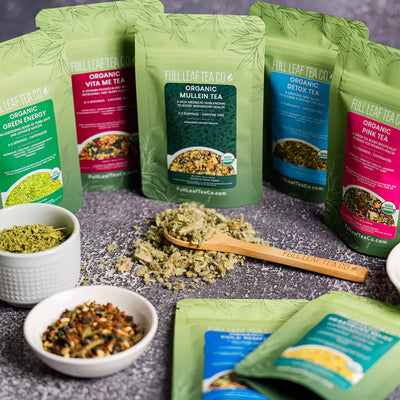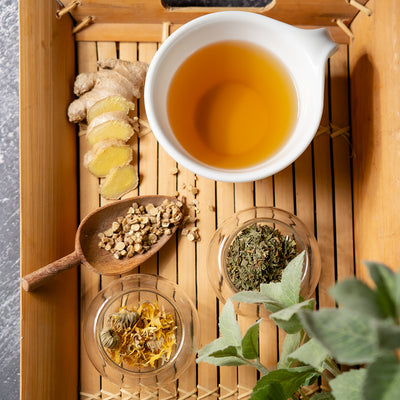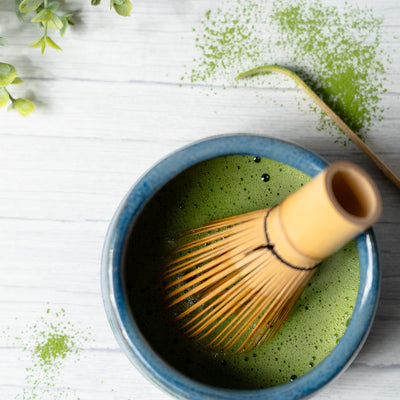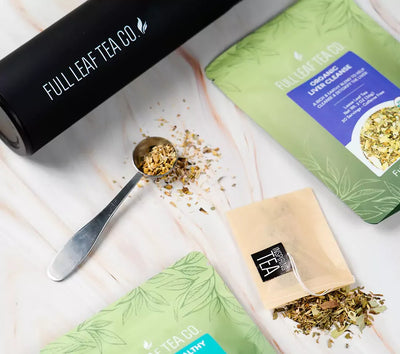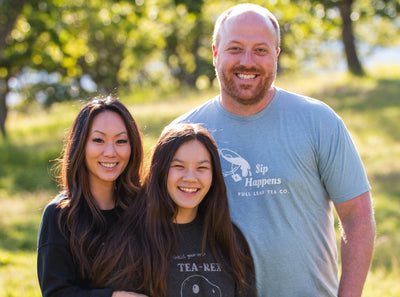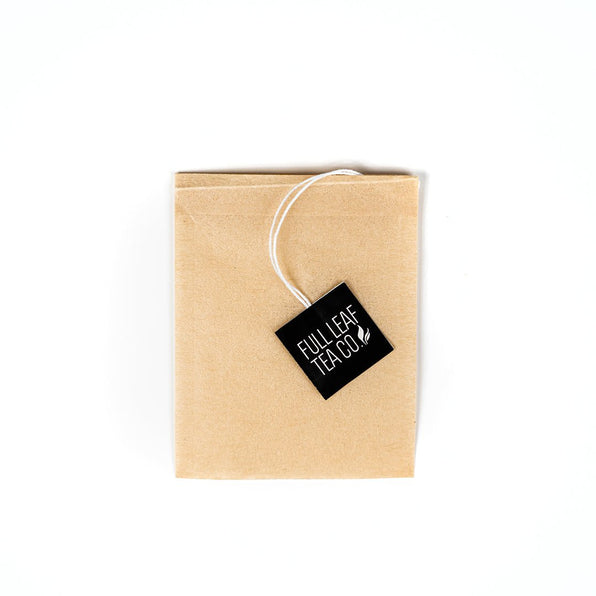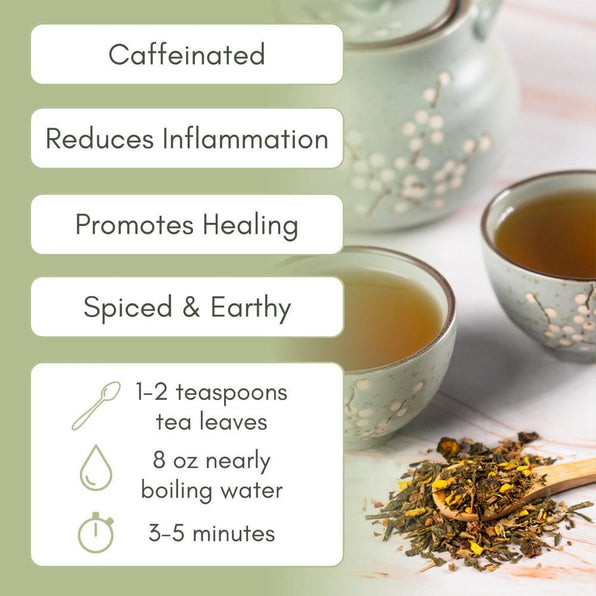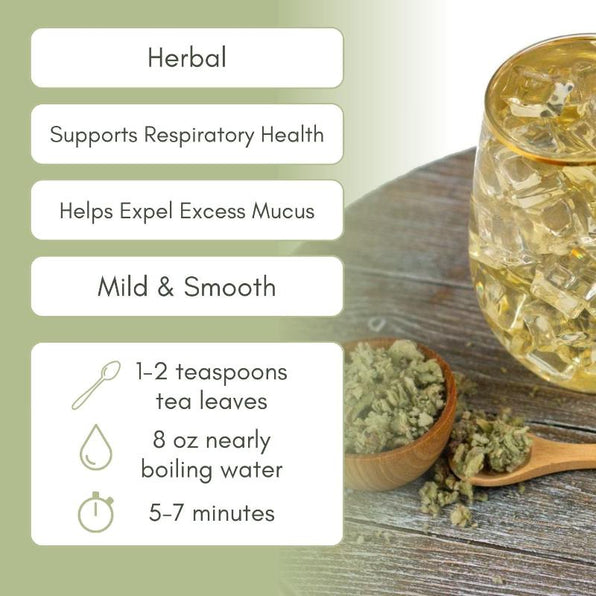What The Science Says About Mullein
It cannot be overstated: our planet is nothing short of miraculous. While human suffering may always be a matter of fact, this little blue orb we live on is gestating with untapped discoveries, if only we grasped at them. Some civilizations have known about the wonders of Earth for thousands of years. For example, Dioscorides, a physician for the Roman Army, recommended using the plant known as mullein to treat pulmonary diseases over 2,000 years ago in his Greek encyclopedia of herbal medicine [1]. In this blog, I want to take the time to do the research for you, and discover what modern science says about the great plant known as Mullein.
Verbascum Thapsus, the species of plant commonly known as 'mullein', has been used to treat a variety of ailments for thousands of years in traditional medicine. Occasionally, however, 'traditional' medicine can be diametrically opposed to well-vetted, 'modern' medicine, requiring additional research to confirm the following: were these ancient civilizations onto something? Let's take a closer look at what the studies say.
Respiratory Health: A Breath of Fresh Air
A 2005 study published in the journal Phytotherapy Research found that mullein extract demonstrated expectorant and bronchodilatory effects in animal models [2]. While animal models do not always translate to humans, this study does lend credence to the traditional use of mullein for respiratory conditions. Expectorant properties often help in clearing mucus from the airways, while the bronchodilatory effects typically ease breathing, making mullein a potential aid in managing conditions such as asthma and bronchitis. However, I think further research involving human subjects is necessary to confirm these benefits and determine appropriate dosages.

Nature's Antimicrobial Agent
In an era of increasing antibiotic resistance, mullein's antimicrobial properties are particularly intriguing. A 2009 study in the African Journal of Microbiology Research isolated compounds from mullein leaves that showed antibacterial activity against several strains, including those isolated from urinary tract infections [3].
Specifically, the study found that ethanolic extracts from Verbascum sinuatum L. leaves demonstrated strong antimicrobial activity against common urinary tract pathogens such as Enterococcus faecalis, Proteus mirabilis, and Candida albicans. The extracts showed inhibition zones of 20.0, 18.0, and 20.0 mm respectively for these pathogens, which were comparable to or even better than some standard antibiotics used in the study. In fact, the minimum inhibitory concentrations (MICs) for these pathogens were impressively low, ranging from 4.0 to 8.0 μg/mL.
These findings suggest that mullein extracts could potentially be developed into new antimicrobial agents, especially for treating urinary tract infections. While this doesn't mean we should toss out our prescription antibiotics just yet, it does open up exciting possibilities for future research into natural alternatives or complementary treatments for bacterial infections.
The Anti-Inflammatory Ally
Inflammation is at the root of many chronic diseases, and mullein might have a role to play here too. A 2013 study in the Revista Brasileira de Farmacognosia demonstrated that mullein leaf extract had significant anti-inflammatory effects [4]. This study provided compelling evidence for the anti-inflammatory properties of verbascoside, a compound isolated from Verbascum thapsus L. (common mullein).
The researchers investigated the effects of verbascoside on human monocytic leukemia cells (THP-1) that were stimulated with lipopolysaccharide (LPS) to induce an inflammatory response. They found that verbascoside significantly reduced the production of pro-inflammatory cytokines, including tumor necrosis factor-α (TNF-α) and interleukin-8 (IL-8). These cytokines play crucial roles in the inflammatory process, and their reduction suggests a potent anti-inflammatory effect.
The study revealed that verbascoside's anti-inflammatory action is likely mediated through the inhibition of nuclear factor-κB (NF-κB) activation. NF-κB is a key transcription factor involved in the regulation of inflammatory responses. By suppressing its activation, verbascoside effectively dampens the inflammatory cascade at a fundamental level.

Interestingly, the researchers also found that verbascoside exhibited antioxidant properties, as evidenced by its ability to reduce reactive oxygen species (ROS) production in the cells. This dual anti-inflammatory and antioxidant action makes verbascoside a particularly promising compound for potential therapeutic applications.
These findings provide a scientific basis for the traditional use of mullein in treating inflammatory conditions and suggest that mullein extracts or isolated compounds like verbascoside could potentially be developed into novel anti-inflammatory agents. However, as with all preliminary studies, further research, including in vivo studies and clinical trials, would be necessary to fully understand the therapeutic potential and safety profile of these compounds.
Conclusion: A Plant with Potential
Two millennia after Dioscorides first documented mullein's healing properties, modern science stands on a fulcrum. We are teetering on the edge of rediscovering ancient wisdom, while some reap the benefits of what is already known. While we may need more studies to definitively conclude upon the wonders of mullein, sometimes we just need to take a step back and try it for ourselves. It’s said that anecdotal evidence is just a study that was never written down. I hope this exploration of mullein reminds everyone that the miracle of our planet lies not just in what we know, but in what we have yet to discover. It beckons us to look closer, to question more deeply, and to approach the natural world with both scientific rigor and open-minded wonder.
[1] Silverman, Maida (1977). "Mullein". A City Herbal: Lore, Legend, & Uses of Common Weeds. Ash Tree Publishing. pp. 99–104. ISBN 1-888123-00-1.
[2] Turker, A. U., & Gurel, E. (2005). Common mullein (Verbascum thapsus L.): recent advances in research. Phytotherapy Research, 19(9), 733-739.
[3] Sener, A., & Dulger, B. (2009). Antimicrobial activity of the leaves of Verbascum sinuatum L. on microorganisms isolated from urinary tract infection. African Journal of Microbiology Research, 3(11), 778-781.
[4] Riaz, M., Zia-Ul-Haq, M., & Jaafar, H. Z. (2013). Common mullein, pharmacological and chemical aspects. Revista Brasileira de Farmacognosia, 23(6), 948-959.
Interested in Trying Mullein?
Thank you for reading! I want to say we always recommend speaking with your primary medical provider for any medical advice, but if you are interested in trying mullein for yourself, we recommend our Organic Mullein Tea here at the Full Leaf Tea Company. We pride ourselves in our USDA-certified organic wellness teas and we believe you’ll love our mullein!

